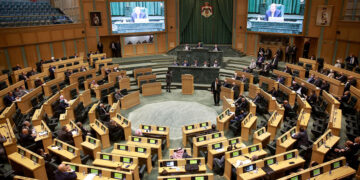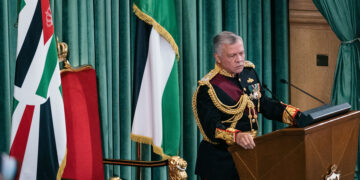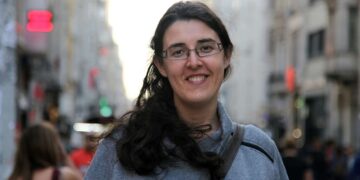Judge Falah al-Hajri, a United Arab Emirates (UAE) Federal Supreme Court Judge, presided over the 2013 trials of the "UAE 94," a group of 94 individuals, including human rights defenders, judges, academics, student leaders, and more. Those sentenced included prominent activists Mohammad al-Roken and Abdulsalam Darwish al-Marzooqi, both previously profiled by DAWN. Al-Hajri is responsible for grossly violating the human rights of the defendants, as the trial he presided over included serious violations of due process, and al-Hajri ignored accusations of torture during pretrial detention. At least 17 of the defendants remain arbitrarily detained beyond their sentenced release date.
"Al-Hajri seems to think that his job is to enforce the will of Emirati political elites within the UAE rather than enforce just laws and ensure basic principles of rights and due process," said Jon Hoffman, Research Director at DAWN. "It is shocking that a judge can hear so many torture complaints from different prisoners throughout months of detention and during court sessions, yet do nothing to restore even a modicum of justice to his court."
The trials of the "UAE 94" followed a wider crackdown across the UAE as a result of the 2011 Arab uprisings. Though the UAE did not witness the levels of mobilization displayed in other countries in the Middle East during this time, activists circulated ideas in online forums and petitions calling for political reform within the country during this time. One petition in particular, signed by over 130 Emirati intellectuals and addressed to Sheikh Khalifa, was unique because it brought together pro-democracy activists and individuals affiliated with Jam'iyyat al-Islah wa-l-Tawjih al-Ijtima'i (The Society of Reform and Social Counseling) – most commonly referred to simply as al-Islah (reform) – for the first time in their calls for political reform. The 94 individuals sentenced in 2013 included many signatories of this public petition, including members of al-Islah and independent activists.
Prosecutors accused the 94 reformers of running an organization "seeking to oppose the basic principles of the UAE system of governance and to seize power," and cooperating with the Muslim Brotherhood in other countries as part of a broader effort to destabilize the Middle East. On July 2, 2013, al-Hajri convicted 69 of the 94 defendants, with eight tried in absentia, and acquitted 25.
While in pretrial detention, many of the defendants reported torture, prolonged incommunicado detention periods up to a year, and the government barred them access to legal counsel until several months after their detention. When prosecutors granted them access to legal counsel, the court reportedly required a representative of the state security prosecutor to be present during these interactions. The trial itself lacked any semblance of due process, with defendants prosecuted solely for their expression of free speech. The government prohibited independent reporting of the trial and independent media and trial observers, and several relatives of the individuals sentenced faced harassment and even detention following their criticism of the proceedings. At least 17 of the individuals sentenced in 2013 remain arbitrarily detained despite serving the duration of their sentencing, under the vague pretext of "counter-extremism counseling."
Al-Hajri was the presiding judge in other high profile cases in the UAE where he likewise ignored serious allegations of torture. In July 2021, prominent Emirati human rights lawyer, Ahmed Mansour, described in leaked letters from al-Sadr prison in Abu Dhabi violations he suffered by UAE authorities. Mansour stated that al-Hajri ignored his allegations of torture during his appeal hearings between October and December 2018. Al-Hajri denied him a fair appeals trial, ruling against Mansour's appeal in a court session, postponed three times, on December 31, 2018.
Similarly, Maryam al-Balushi, a political prisoner in the UAE, accused al-Hajri of ignoring her allegations of torture by state security services. In leaked audio published by the International Center for Justice and Human Rights in November 2018, al-Balushi explained that during her appeal hearing at the Union Supreme Court in May 2017, the presiding judge al-Hajri ignored her detailed allegations of torture and refused to investigate them. Al-Hajri also refused to request a medical examination for her to prove her claims. On June 5, 2018, al-Hajri upheld al-Balushi's five year prison sentence.
"Al-Hajri's callousness towards repeated injustice is so entrenched, that he seems to never run out of patience or moves in playing along with the UAE authorities to convict and imprison peaceful activists even when faced by undeniable evidence of torture," said Hoffman.
DAWN calls on the UAE to release all prisoners of conscience and end the persecution of civil society activists. The U.S. should demand the immediate release of the prisoners that remain detained beyond their sentenced release date.
See cases: Mohammed al-Roken and Abdulsalam Darwish al-Marzooqi
***
Tweet the ِEmirati Ministry of Justice here and the ِEmirati Embassy in Washington DC here. Tell them to stop prosecuting peaceful dissidents.
About DAWN's culprit gallery:
Tyrants need enablers who will implement their oppressive practices, even if it means abusing their fellow citizens. These agents often mask their complicity in the guise of professionals exercising their duties in offices, courtrooms, police stations, and interrogation rooms.
DAWN seeks to disclose the identity of the state agents who enable repression and to make them recognizable at home and abroad. These individuals, whom DAWN calls "culprits," bear administrative, civil, moral, legal, and/or political responsibility for human rights and international humanitarian law violations.





































